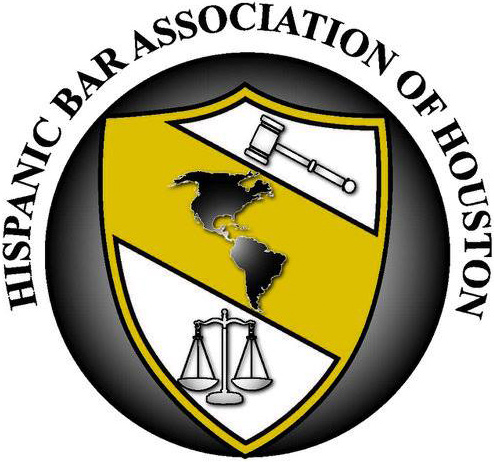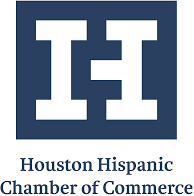Overview of Texas Immigration Information
- Texas State Immigration Laws
- When & Why an Immigration Attorney is Important
- Types of Immigration Cases
- Additional Resources
Texas State Immigration Laws
While many states, cities, and counties have become “sanctuary” jurisdiction, there are others that have entered into agreements with the U.S. Immigration and Customs Enforcement (ICE) agency. Although there is no official or agreed-upon definition of what constitutes a “sanctuary” jurisdiction, the traditional sanctuary policies follow the basic principles of, don’t enforce, don’t ask, and don’t tell. The policies generally prohibit or limit the state and local police from cooperating with federal immigration authority, prevent certain state or local officials from questioning a person’s immigration status, and restrict the sharing of information between state and local police and federal immigration authorities. See “Sanctuary” Jurisdictions: Federal, State, and Local Policies and Related Litigation
There are states, cities, and counties that are part of the U.S. Immigration and Customs Enforcement (ICE) Section 287(g) ACCESS Program. The program is a partnership with ICE and the state and local law enforcement agencies, allowing them the authority to act as immigration enforcement agents that help identify and remove aliens who are subject to deportation/removal from the United States. The agreement – known as “287(g) contracts” or “Memorandum of Agreements (MOAs)” – is problematic for many individuals because it leads to racial profiling, civil rights violations, immigrant communities feeling isolated, and separation of families. Additionally, police target and harass specific groups, which can hinder many local businesses and communities. Immigrants will avoid communities, businesses and decline to participate in anything that requires them giving personal information or law enforcement being present. While Harris County has opted out of the 287(g)-contract agreement, there are other counties in Texas that have applied and signed the agreement. Therefore, having legal representation is crucial, and knowing what resources are available to you is equally important.
How Immigration Works
The immigration system in the United States largely relies on immigrants having sponsors (United States citizens who are sponsoring or petitioning for relatives) or being highly skilled. Most unskilled aliens without relations to United States residents are unable to successfully obtain green cards (proof of lawful permanent resident [LPR] status) because the number of green cards issued each year is limited to about a million per year.
The maximum family preference visas per fiscal year are 480,000 and a minimum of 226,000. Although there isn’t a current limit for the number of visas issued to immediate relatives, the number of visas that are issued is subtracted from the 480,000 maximum of family preference visas. Therefore, the remaining amount determines how many other relatives will be admitted to the United States for each fiscal year. Furthermore, each family preference categories have their own fiscal year numerical limitations. In 2018, there was a total of 211, 641 visas issued for Family-Sponsored Preference, and 236,526 for Immediate Relatives. See Statistical Information on Immigrant and Nonimmigrant Visas Issued at Foreign Service Posts
Employment-based immigration usually relies on temporary visas, which are also capped in the United States. The U.S. Department of State says that approximately 140,000 employment-based immigrant visas are made available to qualified applicants every fiscal year.
Whether a person is entering a family-based or employment-based immigration proceeding, he or she will likely have to submit a number of extremely detailed applications to federal agencies. It is highly recommended that any person attempting to immigrate into the United States has a knowledgeable immigration attorney review all forms to ensure nothing is inaccurate or incomplete.
Public Services
Some non-U.S. citizens are ineligible to receive most federal public benefits. The restriction to receiving assistance to these services also includes programs that are “means-tested.” In other words, these programs are meant to assist low-income families in retaining some economic stability, gain employment, provide nutrition and health for their children:
- Supplemental Nutrition Assistance Program (SNAP, “Food Stamps”)
- Temporary Assistance for Needy Families (TANF)
- Medicaid
- Supplemental Security Income (SSI)
Also, undocumented immigrants in the United States are not eligible for health care subsidies under the Affordable Care Act (ACA). However, undocumented immigrants are still eligible for other benefits that are considered necessary to protect life or safety, and regardless of status, they are also eligible for programs such as WIC and School lunch programs for children.
Lawfully permanent residents (LPR) do not have access to all public benefits programs. Also, there are eligibility requirements and limitations. For instance, before an individual is eligible for federal “means-tested” programs, they must maintain their LPR status for five years. See Overview of Federal Policy
Employment
84th Leg., R.S., Ch. 425 (S.B. 374) – Texas states has E-Verify requirements, which is overseen by the USCIS (United States Citizenship and Immigration Services) and the Department of Homeland Security. The internet-based system is meant to allow enrolled employers the ability to confirm if their new hire employees meet the eligibility requirements to work in the United States.
Driver’s License/Identification Card Requirements
There are specific required documents necessary to apply for a driver’s license (DL) or an identification card (ID) based on your immigration status. For instance, temporary visitors may be issued a limited-term driver’s license or identification card that expires with the applicant’s lawful presence. See Verifying Lawful Presence
When & Why an Immigration Attorney is Important
There are various reasons why gaining an experienced immigration lawyer is crucial and beneficial to your future and your family. Tackling any immigration-related situation on your own can have unfavorable consequences. Having an attorney present at the earliest stages of your immigration case is important. Determining your legal options, qualification requirements, and what possible challenges you may have to face is crucial in any immigration process.
Below are common situations in which having a legal professional represent your best interest is beneficial and can make a difference in the outcome of your case:
- Application Process – Whether you are applying for Citizenship, a Fiancé Visa, planning to engage in trade (E-1) or investment (E-2), regardless of the type of visa you are applying for, having an attorney can help with the abundance of documentation preparations. The process can be overwhelming, and applications can be denied for simple mistakes or missing paperwork. Rather than delaying your application or risking the possibility of being denied, obtaining a skilled attorney can simplify the process by handling the paperwork and following-up with any requests.
- Family-based Immigration – If you would like to bring a family member to the United States, consulting with an attorney is crucial. There are various categories in which family members can be sponsored for lawful permanent residency. One of the main principles of immigration laws is the unification of families, and this is facilitated through family-based immigration which admits family-based immigrants as immediate relatives of United States citizens or through family preference system. Acquiring the help of a legal professional is essential because the process requires many documents that must be done correctly. If the documents are not completed correctly, it can delay the process, and issues can arise.
- Foreign Employee –Usually, employers have their legal department handle the paperwork. However, in the case that you do not have legal guidance, obtaining an attorney is a wise decision that can lower the risk of delaying your paperwork.
- Employers Looking to Hire Foreign Workers –The world is full of skilled workers with valuable knowledge. For a U.S. employer to legally employ a foreign worker, they must do so through the H-1B visa program. This visa program is reserved for foreigners who work in specialty occupations.
- Facing Deportation/Removal – If you are in danger of deportation or have an immigration court deportation proceeding, seek and retain a lawyer as soon as possible. Your attorney will be able to best inform you of how the outcome of your case can affect your application or status.
- Grounds of Inadmissibility – 8 USC §1182 and INA §212 Indicate that individuals with: prior history of criminal and terrorist activities, infectious diseases, and other characteristics cannot be allowed to enter the United States unless special permission is given. For example, if you committed a crime in a foreign country and are seeking legal entry into the United States, you may have to file an I-601 waiver. Furthermore, applicants applying for a change of status, such as permanent residency, must also be admissible. Immigration law treats the applicant as if he/she is outside the United States and is applying to enter.
- Experiencing Delays – The United States Citizenship and Immigration Service (USCIS) Centers may experience delays in processing paperwork, and it is very common. Unfortunately, at times through no fault of the applicant, and for reasons that have to do with bureaucratic rules, applications can be delayed. A lawyer can help move your application along by being the point of contact and submitting the required paperwork.
Types of Immigration Cases
It is important that you know and understand your legal options and your rights. Your immigration eligibility depends on various factors, such as family situation, education, employment, and criminal history. To learn more about what you qualify for, it is imperative that you seek professional legal guidance. At The Gonzalez Law Group, our immigration department is dedicated to helping you throughout your process. We understand the value and importance of family unity, and we offer our attention, services, and resources for immediate and extended family members that want to apply for family-based petitions and visas. At our firm, we extend our high-quality services to United States employers, foreign nationals with United States employment sponsors, and individuals seeking temporary or permanent visas to stay in the United States for employment. Below are the type of immigration cases our immigration department at The Gonzalez Law Group handles:
Criminal Immigration
The consequences of criminal offenses or fraudulent acts are severe. Regardless of how minor the criminal offense may be, it is imperative that an individual obtains an experienced attorney. Criminal offenses, even minor ones, can have severe immigration consequences such as deportation, being denied naturalization, a visa, re-entry into the United States, and much more.
- Illegal Reentry – 8 U.S.C. § 1326 and INA § 276 indicate the penalties for illegal reentry into the United States. 8 U.S.C. § 1326 (a)(2) states that if a person who has been denied admission, excluded, deported, or who has been found reentering the U.S. after previous unlawful presence can be fined under title 18 and/or imprisoned for up to 2 years. In addition, the imprisonment term for illegal reentry can jump to 10 years if the “alien” was removed for committing three or more misdemeanor crimes involving drugs, crimes against another person, or a felony (“other than an aggravated felony,” which has a maximum sentence of 20 years).
- Immigration Bond Hearings – If you are being detained it is imperative that you consult with an experienced attorney to know if you are eligible for a bond hearing. Some factors that can affect your eligibility for a bond hearing include your current status in the United States and the reason you were detained. If your loved one is any detention center (e.g., Alvarado, TX Detention Center) and needs assistance requesting an immigration bond hearing contact our firm today.
- Immigration Consequences of an Arrest – DHS Form I-247 is an “Immigration Detainer – Notice of Action” meant to provide notice of ICE’s intent to assume custody of an individual that is detained in federal, state, or local custody. One of the most common reasons that an immigration hold is placed on an individual is because of possible concerns the alleged immigrant offender is suspected of a crime that may or may not make the individual deportable.
- Airport Arrest – Just because you are arrested does not mean that you will be deported. It is important to remain calm and be cautious about making statements to government officials. There are many reasons that lawfully permanent residents and visa holders are arrested in the airport and there are many ways to beat immigration charges. Consult with our team of legal professionals to learn more about your legal options based on the facts of your case.
- Deportation/Removal – There are various types of relief from deportation/removal. People who have allegedly overstayed their visas are commonly targeted for deportation through expedited removal orders. Consulting with an experienced and skilled immigration attorney can best inform you of what options are available to you.
Family-Based Immigration
There are two groups of family-based immigrant visa categories: immediate relative and family preference. The immediate relative visas are not limited each fiscal year and the visa types include spouse of a U.S. citizen (IR-1), unmarried child under 21 of a U.S. citizen (IR-2), orphan adopted abroad by a U.S. citizen (IR-3), orphan to be adopted in the U.S. by a U.S. citizen (IR-4), and parent of a U.S. citizen who is at least 21 years old (IR-5). On the other hand, family preference visas are for more distant family relations such as family third preference (F3) meant for married sons and daughters of U.S. citizens, and their spouses and minor children.
- Fiancé Visa (K-1) – This is meant for a U.S. citizen and a foreign citizen who are planning to marry. The visa is considered a nonimmigrant visa and allows the foreign citizen to travel to the U.S. to marry the sponsor within 90 days of arrival.
- Children (K-2) Derivative – If you are petition for a K-1 visa for your fiancé that has children, then you might also require a K-2 derivative. It is important to seek experienced legal representation to ensure the appropriate documentation are submitted.
- Spouse (K-3/K-4) Visa – The visa allows for a spouse or a child of a U.S. citizen to enter the country as a nonimmigrant. Consulting with a legal professional can help you determine if you meet the requirements necessary, help you through the application process, and any information or assistance you might need when adjusting their status.
- Green Cards – There are different categories and an applicant must be eligible under one, consulting with an attorney can help you determine what category you would fall under. For example, an immediate relative of a U.S. citizen, a relative to a permanent resident under the family-based preference categories, fiancé or the child of the fiancé, widow(er) of a U.S. citizen, or if you were an abused spouse of a U.S. citizen or lawful permanent resident. Also, there are green cars through employment, special immigrant categories (e.g., asylee), and much more.
Employment-Based Immigration
Many foreign nationals are able to acquire employment in the United States and require an employment-based visa.
- Permanent Workers – There are five preference categories, it is in your best interest to consult with an experienced attorney so that you know which preference category you qualify for.
- Temporary Workers – There are multiple visa classifications that allow employers to hire and petition for workers. Temporary workers are hired for specific jobs, for a limited period, and have limited ability to change jobs. Also, the visa classification varies in terms of eligibility requirements, duration, whether the worker can bring a family member and many more factors. In most cases, if the person’s status expires or if their employment is terminated, they must leave the United States. Nevertheless, it is possible for employers to sponsor their workers for permanent employment (this has its own requirements).
- L-1A Intracompany Transfer – This visa is a nonimmigrant work visa that allows an employer to transfer certain employees from a foreign office to an affiliate office in the United States. There are requirements for the employer to qualify. Also, spouses and unmarried children under 21 years old may follow L-1A workers. Consult with an immigration attorney to learn more information about your options based on the facts of your situation.
- L-1B Intracompany Specialized – The visa allows employers to transfer foreign employees with specialized knowledge relating to the interest of the business or company. Usually, these employees are brought to establish a new office, branch, or affiliate of the company.
- H-1B Special Occupations – American employers are able to hire foreigners to temporarily work in occupations that are considered specialized, for example, engineering, architecture, computer science, etc.
- Business Visitors: E-1/E-2 Treaty Traders/Investors – Trade (E-1) and investor (E-2) visas are for foreign citizens of countries in which the U.S. maintains “treaties of commerce and navigation.” Moreover, the visas are intended for these individuals to enter the United States to pursue investments and trade opportunities.
Other Immigration-Related Affairs
- Naturalization/Citizenship – If you need assistance obtaining a Certificate of Citizenship or Naturalization Certificate, retain the help of an immigration attorney at The Gonzalez Law Group.
- Student & Exchange Visitors – Exchange visitors and students obtain a nonimmigrant visa that allows them to stay in the country on a temporary basis.
- Waivers – The waivers are meant for individuals who have made a mistake and as a consequence for their action they may be ineligible for readmission into the United States. Not every case is exactly the same. It is imperative that you retain legal counsel as soon as possible, the immigration process can be difficult and lengthy.
- 601 – Convictions – The waiver acts as a form of forgiveness, however, not every criminal offense is eligible for a 601 waiver. Consulting an attorney can help you determine what waiver is best based on your particular circumstances.
- 601A – Unlawful Presence – It is vital that you acquire an immigration lawyer. Any incorrect information or mistake can bar the individual from returning to the U.S. for years.
- I212 – Readmission After Deportation – The waiver is a form or permission to reenter the United States. Consulting with a skilled immigrant attorney can help you determine if this waiver is necessary for your specific case.
- Victims of Abuse – If you are an immigrant who is a victim of violent crimes or domestic violence, consult with a legal professional. The immigration lawyers at The Gonzalez Law Group can help you determine what petitions you may be able to file based on your situation, what visa application would be in your best interest, and what resources are available to you. We understand that there are many reasons why a victim might be afraid to come forward, nevertheless, we are here to help, and we assist people understand their immigration rights.
- Special Immigrant Juvenile (SIJ) – Certain undocumented children who have been the subject of neglect, abuse, abandonment, or “similar basis under state law” has the ability to seek lawful permanent residency in the U.S. It is important to consult with a legal professional because the paperwork required for this process involves the state juvenile court as well.
- Asylum – 8 U.S.C. §1101(a)(42) and INA § 101(a)(42) indicates the definition of what is considered to be a “refugee.” An asylum is a form of protection for individuals who are seeking refuge in the United States. The process can be grueling because of the interview, having an attorney present can help.
Additional Resources
How Immigrants Can Obtain Health Coverage – Follow the link to learn up-to-date information on your health insurance eligibility. The site also provides individuals with information on health insurance based on their specific state, provide a quote, and assistance with finding affordable health plans.
USCIS — USCIS is the government agency that oversees lawful immigration to the United States. On this website, you can apply for citizenship, learn more about the path to citizenship, and find study materials for the naturalization test. You can also find information about green cards, recent news, and other research tools.
Green Card Statistics – According to the Pew Research Center, U.S. Department of Homeland Security data released in July 2017 showed more green cards were issued to immigrants already living in the country on another visa who adjusted their legal status than to new arrivals every fiscal year since 2004. Green cards are usually issued in family-based immigration cases.
Contact an Immigration Attorney in Houston, TX
The immigration process can be lengthy, daunting, and tedious. Whether you are going through the process of bringing loved ones to the United States, need assistance with the process of acquiring employment-based visas, obtaining business-related green cards, or a defense against deportation, it is in your best interest to retain an attorney. At The Gonzalez Law Group, our qualified legal professionals approach every case with ready to provide our clients with our understanding, resources, and high-quality service.
Our Houston immigration attorneys represent individuals throughout Harris County, Friendswood, Pearland, Seabrook, League City, Deer Park, Pasadena, La Porte, Galena Park, Baytown and many others. You can trust us with your case, we will work tirelessly to make sure you receive our full attention and services. Contact our skilled Houston immigration attorneys, so that we can review your case, help you understand your legal options, and what potential challenges to expect. Let us help you through the process, you do not have to feel overwhelmed because we will guide you every step of the way, we will do everything in our power to submit the proper paperwork, follow-up with any request, and much more while keeping you informed. Call (832) 530-4070 or complete an online contact form to receive a free, confidential consultation.

















































